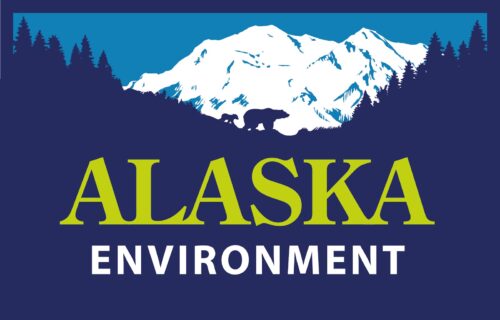
Alaska Environment On Supreme Court Decision That Would Remove Federal Wetlands Protection
The following press release is courtesy of Alaska Environment:

Statement: Supreme Court ruling is devastating setback for clean water
Decision in Sackett v. EPA leaves many wetlands without federal protection against pollution or degradation
ANCHORAGE – The Supreme Court issued a decision Thursday that removes federal protection for millions of acres of the United States’ remaining wetlands, 63% of which are in Alaska. In Sackett v. EPA, the Court ruled that only wetlands with a continuous surface connection with other waterways are protected by the Clean Water Act. Wetlands are vital to our ecosystems — filtering out pollutants, providing wildlife habitat and protecting communities from flooding.
In response to the EPA rule, Alaska Environment Research and Policy Center State Director Dyani Chapman issued the following statement:
“Wetlands in Alaska are essential to the health of our state, and we rely on the services they provide us. Wetlands filter sediments and pollution out of our water before it reaches streams and rivers where it can threaten wildlife and our drinking water. They are the breeding ground for many of our fish. Our wetlands also protect many communities from flooding– a need that will grow only more urgent as climate change causes more torrential storms and rising sea levels. Already, our nation has lost vast expanses of wetlands to sprawl, mining, pipelines and more. We are fortunate in that most development in Alaska happened after Clean Water Act protections went into effect, so we still have the abundance of blessings our wetlands bring.”
“Yet today, our nation’s highest court chose to gut the Act’s protections for vast acres of wetlands, excluding all but those with a ‘continuous surface connection’ — the Court’s phrase, which appears nowhere in the Act itself — to a river, lake or other waterway. After this decision, the federal government — and citizens who rely on the Clean Water Act in court — will be powerless to stop developers, mining operators and oil and gas companies from degrading or polluting these wetlands, putting our wildlife, drinking water and communities at risk.
“Only Congress can restore these federal protections. In the meantime, it is imperative that our state and local officials act immediately to adopt and enforce stronger policies to safeguard clean water and wetlands in particular.”
John Rumpler, our national partner Environment America Research & Policy Center’s clean water program senior director, released the following statement:
“This Supreme Court decision represents a misguided interpretation of the Clean Water Act — our nation’s bedrock environmental law for more than 50 years. Congress explicitly referenced wetlands in the Clean Water Act, and courts have generally interpreted the law’s scope expansively – in light of its stated objective ‘to restore and maintain the chemical, physical, and biological integrity of the Nation’s waters.’
“The Court’s 5-4 majority opinion explicitly rejected the much broader ‘significant nexus’ test for determining protected waters, which courts have generally followed since Justice Kennedy’s concurring opinion in the Rapanos case in 2006. In short, today’s ruling in Sackett is the narrowest interpretation of the Act to ever receive five votes on the Court, and it puts many of our waterways at greater risk of pollution and degradation.”
Alaska Environment Research and Policy Center is a statewide member based environmental nonprofit. Our staff work together for clean air, clean water, clean energy, wildlife and open spaces, and a livable climate. Alaska Environment Research and Policy Center and our national partner Environment America Research and Policy Center, are part of The Public Interest Network, which runs organizations committed to a shared vision of a better world, a set of core values, and a strategic approach to getting things done.



